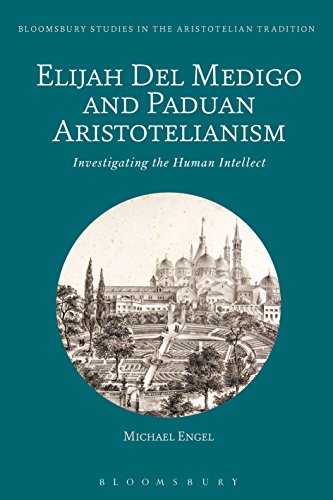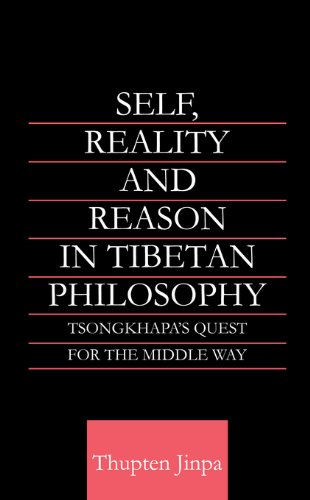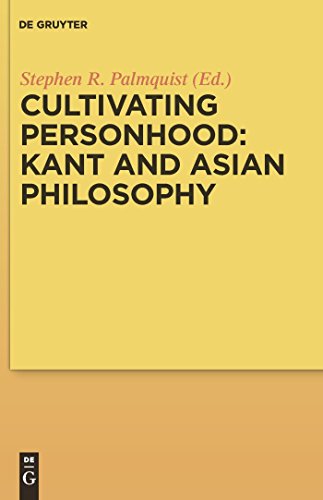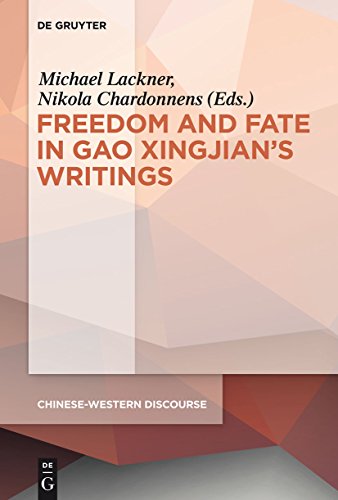
By Michael Engel
In this e-book, Michael Engel areas Del Medigo's philosophical paintings and his rules in regards to the human mind in the context of the broader Aristotelian culture. delivering an in depth account of the original mix of Hebrew, Islamic, Latin and Greek traditions that encouraged the Two Investigations, Elijah Del Medigo and Paduan Aristotelianism offers a major contribution to our realizing of Renaissance Aristotelianisms and scholasticisms. particularly, via his protection of the Muslim thinker Averroes' hotly debated interpretation of the De anima and his rejection of the average Latin Aristotelianism championed via the Christian Thomas Aquinas, Engel strains how Del Medigo's paintings at the human mind contributed to the improvement of an immense Aristotelian controversy.
Investigating the ways that multicultural Aristotelian resources contributed to his personal idea of a united human mind, Elijah Del Medigo and Paduan Aristotelianism demonstrates the numerous influence made via this Jewish thinker at the heritage of the Aristotelian tradition.
Read Online or Download Elijah Del Medigo and Paduan Aristotelianism: Investigating the Human Intellect (Bloomsbury Studies in the Aristotelian Tradition) PDF
Similar religious & spiritual eastern philosophy books
The Bioethics of Regenerative Medicine: 102 (Philosophy and Medicine)
Regenerative medication is wealthy with promethean can provide. using human embryonic stem cells in examine is justified via its advocates by way of offers to treatment a variety of ailments and disabilities, from Alzheimer’s and Parkinsonism to the result of middle assaults and spinal twine accidents. extra extensively, there's the promethean attract of having the ability to revamp human organic nature when it comes to the pursuits and issues of people.
The paintings explores the old and highbrow context of Tsongkhapa's philosophy and addresses the severe matters relating to questions of improvement and originality in Tsongkhapa's idea. It additionally offers greatly with one in every of Tsongkhapa's basic matters, particularly his makes an attempt to illustrate that the center means philosophy's deconstructive research doesn't negate the truth of the standard global.
Cultivating Personhood: Kant and Asian Philosophy
Authors from around the world unite which will domesticate discussion among Asian and Western philosophy. The papers forge a brand new, East-West comparative direction regularly variety of matters in Kant experiences. the concept that of personhood, the most important for either traditions, serves as a springboard to handle matters similar to wisdom acquisition and schooling, ethics and self-identity, religious/political neighborhood construction, and cross-cultural knowing.
Polyphony Embodied - Freedom and Fate in Gao Xingjian’s Writings (Chinese-Western Discourse)
Like artists, vital writers defy unequivocal interpretations. Gao Xingjian, winner of the Nobel Prize in literature, is a worldly author, deeply rooted within the chinese language earlier whereas inspired through paragons of Western modernity. the current quantity brings jointly for the 1st time a set of essays at the topics of freedom and destiny within the inventive works of Gao Xingjian.
- Learning from Chinese Philosophies: Ethics of Interdependent and Contextualised Self (Ashgate World Philosophies Series)
- History of Chinese Political Thought: During the Early Tsin Period: Volume 18 (International Library of Philosophy)
- Nachman Krochmal: Guiding the Perplexed of the Modern Age (Modern Jewish Masters)
- Human Dignity in Classical Chinese Philosophy: Confucianism, Mohism, and Daoism
- Europes Debt to Persia: Religion, Philosophy, Astronomy, Mathematics, Medicine and the Sciences
Additional resources for Elijah Del Medigo and Paduan Aristotelianism: Investigating the Human Intellect (Bloomsbury Studies in the Aristotelian Tradition)
Sample text


